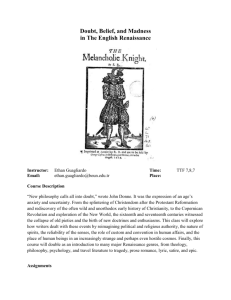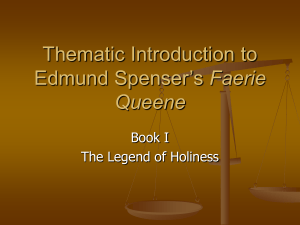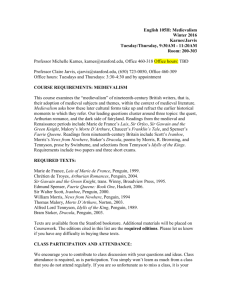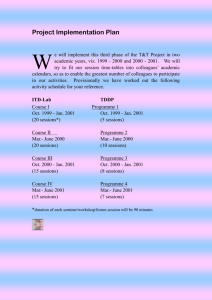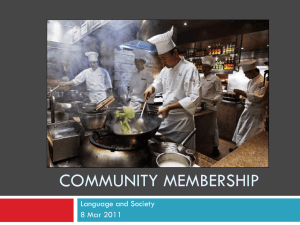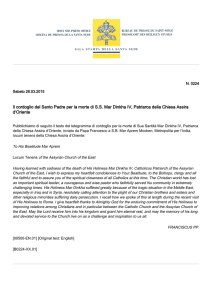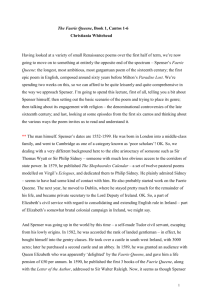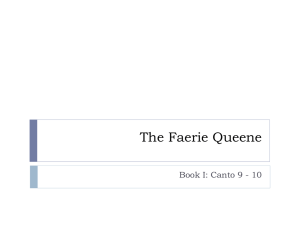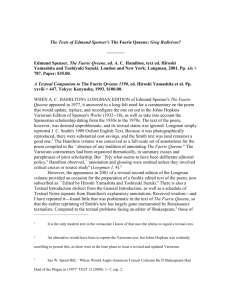338-01. Feather
advertisement
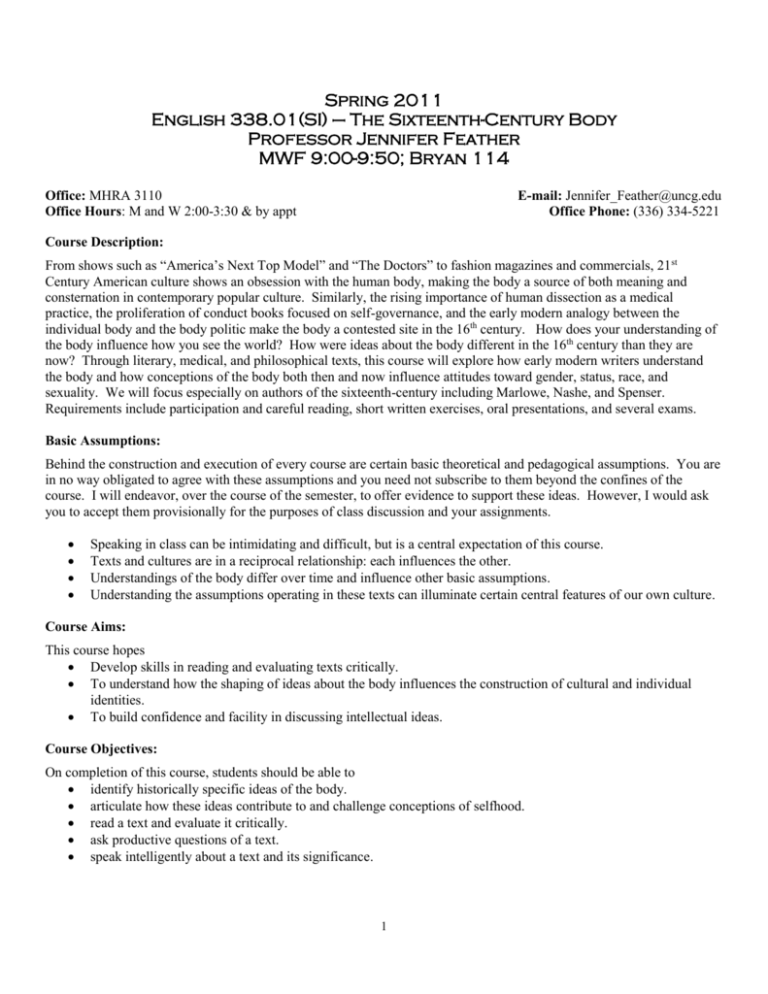
Spring 2011 English 338.01(SI) – The Sixteenth-Century Body Professor Jennifer Feather MWF 9:00-9:50; Bryan 114 Office: MHRA 3110 Office Hours: M and W 2:00-3:30 & by appt E-mail: Jennifer_Feather@uncg.edu Office Phone: (336) 334-5221 Course Description: From shows such as “America’s Next Top Model” and “The Doctors” to fashion magazines and commercials, 21st Century American culture shows an obsession with the human body, making the body a source of both meaning and consternation in contemporary popular culture. Similarly, the rising importance of human dissection as a medical practice, the proliferation of conduct books focused on self-governance, and the early modern analogy between the individual body and the body politic make the body a contested site in the 16th century. How does your understanding of the body influence how you see the world? How were ideas about the body different in the 16th century than they are now? Through literary, medical, and philosophical texts, this course will explore how early modern writers understand the body and how conceptions of the body both then and now influence attitudes toward gender, status, race, and sexuality. We will focus especially on authors of the sixteenth-century including Marlowe, Nashe, and Spenser. Requirements include participation and careful reading, short written exercises, oral presentations, and several exams. Basic Assumptions: Behind the construction and execution of every course are certain basic theoretical and pedagogical assumptions. You are in no way obligated to agree with these assumptions and you need not subscribe to them beyond the confines of the course. I will endeavor, over the course of the semester, to offer evidence to support these ideas. However, I would ask you to accept them provisionally for the purposes of class discussion and your assignments. Speaking in class can be intimidating and difficult, but is a central expectation of this course. Texts and cultures are in a reciprocal relationship: each influences the other. Understandings of the body differ over time and influence other basic assumptions. Understanding the assumptions operating in these texts can illuminate certain central features of our own culture. Course Aims: This course hopes Develop skills in reading and evaluating texts critically. To understand how the shaping of ideas about the body influences the construction of cultural and individual identities. To build confidence and facility in discussing intellectual ideas. Course Objectives: On completion of this course, students should be able to identify historically specific ideas of the body. articulate how these ideas contribute to and challenge conceptions of selfhood. read a text and evaluate it critically. ask productive questions of a text. speak intelligently about a text and its significance. 1 Course Requirements: REQUIRED TEXTS (AVAILABLE AT THE BOOKSTORE OR ON BLACKBOARD): Kyd, Thomas. The Spanish Tragedy (New Mermaids). Ed. Andrew Gurr and J.R. Mulryne. (New York: Methuen, 2009) ISBN: 1408114216 Marlowe, Christopher. The Jew of Malta (New Mermaids). Ed. James R. Siemon. (New York: Methuen, 2009). ISBN: 978-0713677669 Spenser, Edmund. The Faerie Queene, Book 2. Ed. Erik Gray. (New York: Hackett, 2007) ISBN: 0872208478 Additional readings found on Blackboard under “course documents”– noted in the syllabus as [BB] GRADE BREAKDOWN: 2 Exams Presentation 1 and write-up Presentation 2 and write-up Participation in Class 20% each 15% 20% 25% NB You must complete all the work for the course. Failure to submit any of these assignments will result in your failing the course. OBSERVATION RESPONSIBILITIES: To help me keep track of class participation and informal assignments, you will each be asked to submit your notes once over the course of the semester. These notes should be a transcript of what happened in class, including the names of your classmates and a brief sketch of the questions they asked or comments they made. Submitting these notes will count toward your participation grade. EXAMS: You will have two exams. Both will be administered in-class. All exams will be cumulative for the material covered in class. The exams are designed to help you hone the skills that enable to read and analyze texts well, and thus, will be useful in producing your presentations and writing assignments. There are no make-up exams, except in cases of documented medical or personal emergencies or religious observance (with advance notice). In other words, unless you provide documentation when the makeup exam is scheduled, I will not allow you to take the makeup exam. You must bring your own blue books to class to use for both exams. PRESENTATIONS: You will present twice over the course of the semester. With each 10-minute presentation you will also submit a piece of writing that relates to the presentation. More specifics about the presentations and writing assignments can be found on blackboard under “course information.” You will be graded on how well you fulfill the expectations outlined in those guidelines. You must meet with me BEFORE your first presentation. WRITING ASSIGNMENTS AND THE WRITING CENTER: Writing assignments: You will have one 4-5pp paper due at the end of the term on May 2nd, and a shorter paper (1-2pp) due the day after your first presentation. Your exams and presentations will help you develop the skills and ideas that make a good paper. If you do those assignments diligently, your final paper should be reasonably easy to put together. Important Writing Instructions: Use MLA style for all citations. All papers should be 2 o Typed in 12-point Times New Roman o Have one-inch margins and page numbers o Be double-spaced o Be stapled Papers are due at the beginning of class on the due date AND must be uploaded via safeassign in “.doc, .docx, or .rtf” format. Later papers will lose a full letter grade for each day they are late. Thus, I will not grade any paper that is more than five days late except in cases of documented medical or personal emergency. From the Writing Center Website, http://www.uncg.edu/eng/writingcenter/ “The purpose of the Writing Center is to enhance the confidence and competence of student writers by providing free, individual assistance at any stage of any writing project. Staff consultants are experienced writers and alert readers, prepared to offer feedback and suggestions on drafts of papers, help students find answers to their questions about writing, and provide one-on-one instruction as needed.” I strongly encourage ALL of you to visit the Writing Center. Whether you are an expert writer or writing is more difficult for you, having someone else look critically at your work is invaluable. For instructions about arranging and appointment go to http://www.uncg.edu/eng/writingcenter/studentfaq.html#q4. ATTENDANCE POLICY: You must attend every class, arrive on time with whatever the assignment for the day is and your book, and you must stay for the duration of the class. If you miss a class, it is your responsibility to contact someone to find out what you have missed. Absences will affect your grade in the course as follows: You may miss class six times without penalty. You do not need to contact me about these absences. Ideally, you will not need to use these absences, but you should reserve them for the following kinds of situations: religious observances, car trouble, work conflicts, routine illness, childcare concerns, minor emergencies, etc. Your final grade will be lowered 2% for each additional absence. Exceptions to this policy may be made for serious, prolonged personal or medical problems with proper documentation, at the discretion of the professor. Your first tardy will be excused; after that, arriving late to class or leaving early will count as 1/3 an absence. If I have begun class, you must remind me to mark you present at the end of that class session or your tardiness will count as a full absence. If you miss 30 minutes or more of any class, it will count as a full absence. Keeping track of your absences and keeping up with readings and assignments is your responsibility. I will not contact you about your absences, but they will be reflected in your final grade. ACADEMIC INTEGRITY: Violations of academic integrity are serious academic offenses that will not be tolerated in this class. I expect every student to review the guidelines and list of violations at http://academicintegrity.uncg.edu and to abide by the UNCG Academic Integrity Policy. Students will need to sign the Academic Integrity Pledge on all major work. As you will see in reading the policy, violations include but are not limited to plagiarism. In writing your papers and exams, you will need to take particular care to avoid plagiarizing the words or ideas of others. When you use sources such as books, web pages, articles, or primary documents in your writing, you must identify them to your reader. If you quote a source directly, you must put the borrowed material in quotation marks and include a proper citation. If you take an idea from another source but put it in your own words (i.e. paraphrase it), you must still give proper credit to the source. Please use MLA style documentation to document any sources used in written work. All suspected violations of the academic integrity policy will be reported to the Dean of Students, and proven violations will result in serious repercussions. In my classes, a single violation of academic integrity is grounds for failure of the 3 entire course. Repeated offenses can cause you to be expelled from the University. It is your responsibility to understand what plagiarism is and how to avoid it. If you are unsure about how to give credit to your sources or have any questions about what constitutes an act of plagiarism, please ask me! TECHNOLOGY: Contact: Email is the fastest way to contact me, and I will occasionally use e-mail to contact you. All messages will be sent to UNCG email accounts, so you need to check your UNCG account regularly. I will do my best to respond to your email within 24 hours on weekdays; please do not expect email responses in the evenings or on weekends. You are required to hand in paper copies of all written work and submit those through safeassign. Blackboard: I have set up a Blackboard website for the course where you can find copies of the syllabus, assignments, announcements, and useful links. Please note that it is your responsibility to print out copies of all handouts and assignment sheets and bring them to class as needed. Laptops and Cellphones: You may NOT use laptops in the classroom except in documented cases of medical need. All electronic devices including cellphones should be turned off before class. READINGS AND DUE DATES Week I M Jan 10 W Jan 12 F Jan 14 Week II M Jan 17 W Jan 19 F Jan 21 Week III M Jan 24 W Jan 26 F Jan 28 Week V M Feb 7 W Feb 9 F Feb 11 Week VI M Feb 14 W Feb 16 F Feb 18 Week VII M Feb 21 W Feb 23 Introduction – Responsibilities Mikhail Bahktin, “The Grotesque Image of the Body and Its Sources” [BB] Andreas Vesalius, excerpts from De Humani Corporis Fabrica [BB] (Preface and Bone of Luz) Thomas Vicary, excerpts from The Anatomie of the Bodie of Man [BB] (Chapters 1 and 3) Thomas Nashe, excerpts from The Unfortunate Traveller [BB] (pp 202-217) Thomas Nashe, excerpts from The Unfortunate Traveller [BB] (pp 232-241; 286-292) Thomas Nashe, excerpts from The Unfortunate Traveller [BB] (pp 292-303) Thomas Nashe, excerpts from The Unfortunate Traveller [BB] (pp 303-316) Thomas Nashe, excerpts from The Unfortunate Traveller [BB] (pp 317-328) Michel Foucault “The Political Investment of the Body” [BB] Aristotle, excerpts from The Nicomachean Ethics [BB] William Shakespeare, The Rape of Lucrece [BB] (Dedication, Argument, lines 1-301) William Shakespeare, The Rape of Lucrece [BB] (lines 301-673) William Shakespeare, The Rape of Lucrece [BB] (lines 674-1015) William Shakespeare, The Rape of Lucrece [BB] (lines 1016-1582) William Shakespeare, The Rape of Lucrece [BB] (lines 1583-End) Norbert Elias, “Civilization and Psychosomatics” [BB] Thomas Elyot, excerpts from The Boke Named the Governour [BB] (pp 29-31; 55-57; 226-36) Edmund Spenser, The Faerie Queene, Book 2 (Letter to Ralegh, Proem, Cantos 1-2) Edmund Spenser, The Faerie Queene, Book 2 (Cantos 3-5) Edmund Spenser, The Faerie Queene, Book 2 (Cantos 6-8) 4 F Feb 25 Week VIII M Feb 28 W Mar 2 F Mar 4 Edmund Spenser, The Faerie Queene, Book 2 (Cantos 9-10) Edmund Spenser, The Faerie Queene, Book 2 (Cantos 11-12) Exam Judith Butler, “Bodies that Matter” [BB] Niccolo Machiavelli, excerpts from The Prince [BB] Week IX M Mar 7 W Mar 9 F Mar 11 SPRING BREAK – NO CLASS SPRING BREAK – NO CLASS SPRING BREAK – NO CLASS Week X M Mar 14 W Mar 16 F Mar 18 Christopher Marlowe, The Jew of Malta, Act 1 Christopher Marlowe, The Jew of Malta, Act 2 Christopher Marlowe, The Jew of Malta, Act 3 Week XI M Mar 21 W Mar 23 F Mar 25 Christopher Marlowe, The Jew of Malta, Act 4 Christopher Marlowe, The Jew of Malta, Act 5 Elaine Scarry, “The Body in Pain” [BB] Raphael Holinshed et al., excerpts from Holinshed’s Chronicles [BB] Week XII M Mar 28 W Mar 30 F Apr 1 Thomas Kyd, The Spanish Tragedy, Act 1 Thomas Kyd, The Spanish Tragedy, Act 2 Thomas Kyd, The Spanish Tragedy, Act 3 Week XIII M Apr 4 W Apr 6 F Apr 8 Thomas Kyd, The Spanish Tragedy, Act 4 NO CLASS NO CLASS Week XIV M Apr 11 W Apr 13 F Apr 15 Thomas Kyd, The Spanish Tragedy, Act 5 Exam Final Presentations – Thomas Nashe, The Unfortunate Traveller Week XV M Apr 18 W Apr 20 F Apr 22 Final Presentations – William Shakespeare, The Rape of Lucrece Final Presentations – Edmund Spenser, The Faerie Queene SPRING HOLIDAY – NO CLASS Week XVI M Apr 25 T Apr 26 Final Presentations – Christopher Marlowe, The Jew of Malta Final Presentations – Thomas Kyd, The Spanish Tragedy I will be in my office during our scheduled exam time (Monday, May 2nd, 8:00-11:00am) to answer any questions you might have and to collect your final papers. If you would like feedback on these papers, you must make an appointment to discuss them with me the following semester. 5
